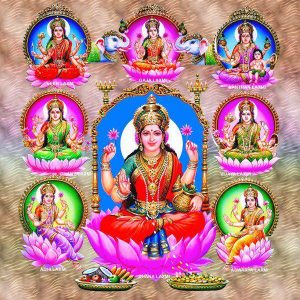
Every festival in India is steeped deep in history and the festival of Diwali is no exception. The celebration of Diwali can be traced back to ancient India when it was an important harvesting season. As the religion developed, various mythological stories and explanations were attributed to this festival to give it religious validation. There are different legends associated with Diwali, which vary from region to region in India. Different religious groups have different reasons to celebrate the festival.
Legends of Diwali
Following are the Hindu legends associated with the festival of Diwali:
Return of Ram to Ayodhya

The most popular legend associated with Diwali is the legend of King Ram. Diwali is the day when Ram returned to Ayodhya following 14 years of exile after defeating the demon king Ravana who abducted Sita, wife of Ram. People of Ayodhya were absolutely ecstatic at the homecoming of Ram and rejoiced by lighting up their houses and distributing sweets to each other, a tradition still followed by all those who celebrate the festival.
Legend of Naraksura

According to this legend, Diwali is the day when Naraksura was killed by Krishna. It is believed that Naraksura had availed a boon of long life from Vishnu. He created havoc in all the three words and started assaulting women. It is said that Naraksura requested Krishna that his death should be remembered by all this is the reason why the day is celebrated as Narakchaturdashi.
Incarnation of Goddess Lakshmi

Goddess Lakshmi was born when Devtas and Asuras were fighting over nectar while churning the ocean. Goddess Lakshmi decided to give nectar to the Devtas.
Return of Pandavas

It is believed that Pandavas returned to their capital Hastinapur after twelve long years of exile. And the occasion was marked by people by lighting earthen lamps (diyas).
Legend of King Bali
Diwali is also believed to be the day when King Bali was sent to Patala by lord Vishnu in his Vamana avatar. Fearing the rising influence of King Bali Vishnu asked for as much land as he can measure with three of his steps. He measured entire earth and heaven with two steps and by placing third at head of Bali (at his request) sent him to Patala.
Coronation of King Vikramditya
It is believed that legendary king Vikramditya was coronated on the day of Diwali giving another reason to people to celebrate the festival.
Diwali as a Harvest Festival
Diwali was initially celebrated as the festival of harvest. It is the time when farmers in India reap their harvest and worship the goddess Lakshmi (goddess of prosperity & wealth) by offering her portions from fresh harvest.
History of Diwali in Sikhism
Also known as the Bandi Chorr Devas among Sikhs, the festival is celebrated to mark the release of sixth guru of Sikhs- Guru Hargobind Singh from the Gwalior Fort along with 52 other Hindu princes in 1619. When Emperor Jahangir agreed to release the Guru at the demand of the Sikhs, the Guru announced that he would not leave without other captivated princes.
Clever Jahangir declared that only those princes who would be able to hold the Guru while he is leaving the prison would be released along with him, knowing that all the princes won’t be able to hold the Guru. The Guru got a garment made which had 52 strings. Each prince held one string and thus the Guru was successful in getting all the princes released. Sikhs celebrated this day by lighting Golden Temple. Also, the foundation stone of Golden Temple was laid on the day of Diwali in 1577.
Significance of Diwali in Jainism
Festival of Diwali is of importance to the Jains as it is on this day that Lord Mahavira (Last Jain Tirthankar) attained Nirvana. It is said that Mahavira attained Nirvana in presence of several gods who enlightened Mahavira and eliminated darkness from his life. Also, Ganadhara Gautam Swami (Chief disciple of Mahavira) gained Kevalgyana (complete Knowledge) on this day.
Importance of Diwali in Buddhism
Buddhists celebrate Diwali to mark the conversion of emperor Ashoka to Buddhism on this day. The festival is known as Ashoka Vijayadashami among the Buddhists and they celebrate it by praying and decorating the monasteries.

Post Your Comments